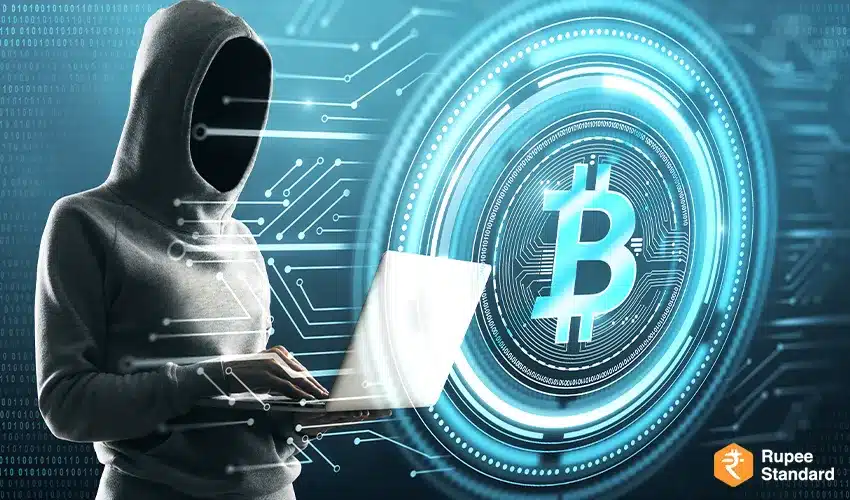The Ponzi Scheme and the Exit Scams
One of the earliest and most prevalent cryptocurrency scams is the Ponzi scheme, where investors are promised high returns on their investments, primarily derived from the investments of subsequent participants.
One infamous example is the case of BitConnect, which promised exorbitant returns through its lending and staking program. However, it turned out to be a classic Ponzi scheme, collapsing in early 2018 and resulting in significant financial losses for investors.
To protect investors, regulatory bodies and law enforcement agencies have increased their focus on investigating and prosecuting fraudulent schemes. Additionally, education and awareness campaigns have been launched to educate potential investors about the red flags and warning signs of Ponzi schemes and other fraudulent activities.
Initial Coin Offering (ICO) scam
The ICO boom of 2017 witnessed a surge in fraudulent projects, where individuals or groups would launch ICOs with no intention of delivering on their promises.
These scams often involved elaborate marketing campaigns, fake teams, and whitepapers with plagiarized or misleading information. Investors would contribute funds, only to realize later that the project was a scam or the team had disappeared.

To mitigate ICO scams, regulatory bodies in various jurisdictions have stepped up their efforts to provide investor protection. Governments and financial authorities have introduced regulations to ensure transparency, accountability, and compliance within the ICO space.
This includes conducting thorough due diligence on projects, issuing guidelines for token sales, and imposing penalties for non-compliance.
Phishing and Hacking attacks
Crypto investors are also vulnerable to phishing and hacking attacks, where malicious actors deceive individuals into revealing sensitive information or gain unauthorized access to their wallets or exchanges. These attacks often involve fake websites, social engineering tactics, and malware-infected applications.
To enhance security measures, crypto exchanges and wallet providers have implemented multi-factor authentication, encryption techniques, and regular security audits.
Additionally, educational campaigns emphasize the importance of practicing good cybersecurity hygiene, such as using hardware wallets, verifying website URLs, and avoiding suspicious links and downloads.
Regulatory measures to protect investors
Regulatory bodies worldwide are taking steps to establish frameworks that protect investors and promote responsible practices within the crypto industry.
Governments are introducing legislation to monitor and regulate cryptocurrency exchanges, impose stricter know-your-customer (KYC) and anti-money laundering (AML) requirements, and enforce compliance with financial regulations.
These regulatory efforts aim to create a safer environment for investors by reducing fraudulent activities, promoting transparency, and holding bad actors accountable.
However, striking the right balance between regulation and innovation remains a challenge, as excessive regulations may stifle the growth and development of the crypto industry.
Self-regulatory initiatives
In addition to government regulations, the crypto industry itself has taken steps to self-regulate and protect investors.
Various industry associations and self-regulatory organizations have emerged, setting standards, best practices, and codes of conduct for companies operating within the cryptocurrency ecosystem.
These initiatives promote transparency, ethical behavior, and accountability, fostering trust among investors.

Notable cryptocurrency scams in India
Crypto scams have unfortunately affected investors in India as well. Here are a few notable cryptocurrency scams that have occurred in the country:
GainBitcoin scam
The GainBitcoin scam, led by Amit Bhardwaj, promised investors high returns through cloud mining investments.
Bhardwaj and his associates attracted thousands of investors by offering lucrative returns, but the scheme turned out to be fraudulent. It was estimated that investors lost millions of dollars in this scam.
BitConnect scam
BitConnect, an international Ponzi scheme, also had a significant impact on Indian investors. The scheme operated by offering a lending and staking program, promising high returns.
Many individuals in India invested their savings into BitConnect, only to suffer substantial financial losses when the scheme collapsed.
OneCoin scam
Although not exclusive to India, the OneCoin scam had a significant impact on investors in the country. OneCoin claimed to be a legitimate cryptocurrency, but it was later exposed as a fraudulent scheme.
Indian investors were lured into investing in OneCoin and suffered substantial losses when the scheme unraveled.
NCR Coin scam
NCR Coin, a cryptocurrency launched in India, turned out to be a scam, causing financial losses to investors.
The promoters claimed that NCR Coin would be India’s first digital currency and convinced people to invest in the project. However, investigations revealed that the project was a fraudulent scheme.

Crypto fraud: An awakening to strength and secure trading platforms
Crypto scams have been a persistent issue in the digital asset space, resulting in financial losses and reputational damage. However, efforts to protect crypto investors have been on the rise.
Regulatory measures, increased awareness, improved security practices, and self-regulatory initiatives are collectively working towards creating a safer investment environment.
Nevertheless, investors should remain cautious, conduct thorough due diligence, and stay informed about the potential risks associated with the crypto market.
With a combination of regulatory oversight, technological advancements, and investor education, the crypto industry can continue to evolve in a secure and sustainable manner.
As part of the ongoing effort to secure crypto trading and instill trust in investors, we at Rupee Standard maintain a robust trading platform. Buy and sell digital money in India, hassle free.


